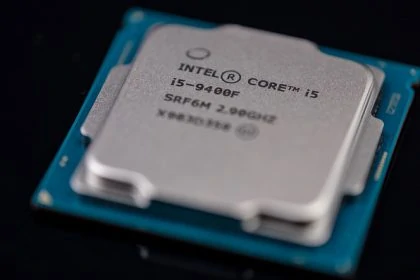UK patent attorneys had several possibilities to work in Germany thanks to German EuPAG. This is over with the Brexit: there is no basis for a power of representation after 1 January 2021. However, admitted representative before the European patent office from the UK are not affected.

As long as the UK was a member of the EU (and also during the transitional period between the UK’s withdrawal from the EU on 1 February 2020 and 31 December 2020), UK patent attorneys could work as patent attorneys in Germany. This was possible in Germany under the ‘Act on the Activities of European Patent Attorneys in Germany’ (in German: “Gesetz über die Tätigkeit Europäischer Patentanwälte in Deutschland” (EuPAG)).
UK Patent attorneys had several possibilities to work in Germany thanks to the German EuPAG. They had the status of a domestic patent attorney (§ 16 EuPAG) and could also represent before the German Patent and Trade Mark Office. Moreover, they could also work as domestic professional representatives – if they were registered in the register of the Chamber of Patent Attorneys (in German: Patentanwaltskammer), in it’s public electronic register).
UK Patent attorneys established in Germany were members of the Chamber of Patent Attorneys and were listed in the German Register of Patent Attorneys. Pursuant to § 20 EuPAG, they were entitled – also under the professional title of their state of origin of the United Kingdom – to provide legal services in the field of foreign and international industrial property protection. However, they were not equal in status to a German patent attorney.
Alternatively, UK patent attorneys could also apply for a determination of equivalence of their professional qualification in order to be admitted to the German patent attorney profession (cf. § 1 et § EuPAG).
No basis for power of representation
These possibilities are now over for UK patent attorneys and UK attorneys-at-law, because the power of representation ended on 31 December 2020. The Trade and Cooperation Agreement between the EU and the UK (ABl. L 444/14 of 31 December 2020) provides no basis for a power of representation after 1 January 2021. The EuPAG in Germany has been amended accordingly.
According to the new paragraph 5 of § 15 EuPAG, the entry in the register is initially blocked and deleted after an appropriate period of time if a person entered in the register loses the status as admitted representative before the European patent office (according to EPC). In other words, patent attorneys from the UK without qualification as admitted representative before the European patent office (according to EPC) will be excluded from this register.
In addition, as of 1 January 2021, under § 206(1) of the Federal Lawyers’ Act, UK lawyers are only entitled to establish themselves in the Federal Republic of Germany under their UK professional title and to advise only on UK law and public international law (adaptation of the EuRAG).
Now after Brexit and transitional period, the power of representation of UK patent attorneys and UK attorneys-at-law has ceased to exist in Germany.
European patent attorneys from the UK: not affected
Please notice: admitted representative before the European patent office from the UK are not affected. And not affected by this are of course UK patent attorneys, who are dual-qualified as admitted representative before the European patent office.
If you want to read more about EPC, please read our article about the European Patent Convention (EPC): Brexit (2): European patents safe?
Changes as well for new applications for IP protection
Moreover, there are also changes for proceedings in the UK and, of course, for all new applications in intellectual property.
Brexit and the European Unified Patent Court
We also take a brief look at the upcoming European Unified Patent Court. At the end of November, the dpa reported that Germany would ratify the European Unified Patent Court in 2020, and it could indeed start soon. But the UK will not participate in the Unified Patent Court, was announced by Prime Minister Boris Johnson’s office last year.
Proceedings in the UK
Proceedings commenced before 1 January 2021
It should be noted that for all proceedings commenced before 1 January 2021, an address for service in the UK is not required for those who have an address for service in the EU or EEA. If a change of address is still required in these pending proceedings, it can also be made to an address in the EU or EEA.
Those who had an address for service in the UK anyway will of course retain it.
Proceedings after 1 January 2021
An address for service in the UK is required for all proceedings which have been or will be commenced after 1 January 2021.
This also applies to applications for protection in the field of trade marks and designs: For all new applications in the UK, an address for service in the UK is also required as of 1 January 2021. Please note that trademarks and designs previously existing in the UK with their old renewal periods have been “cloned” into the new UK Register and will from now on require payment of fees in the UK and EU if they are to continue to exist there.
This also applies to trade mark and design applications claiming a filing date at EUIPO (under Article 59 of the Withdrawal Agreement).
Companies can use the UK branch or UK subsidiary as an address for service.
Sources:
Image:








Leave a Reply